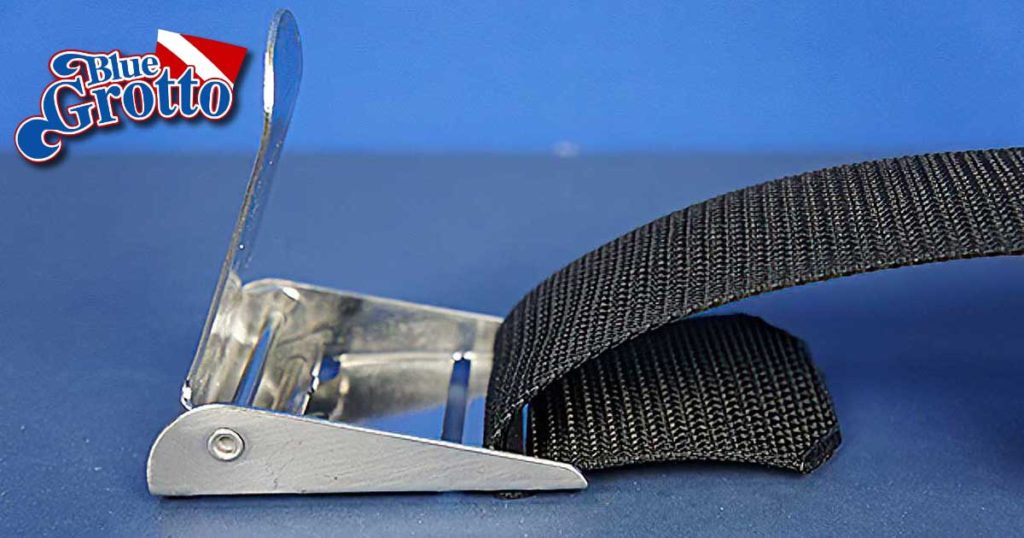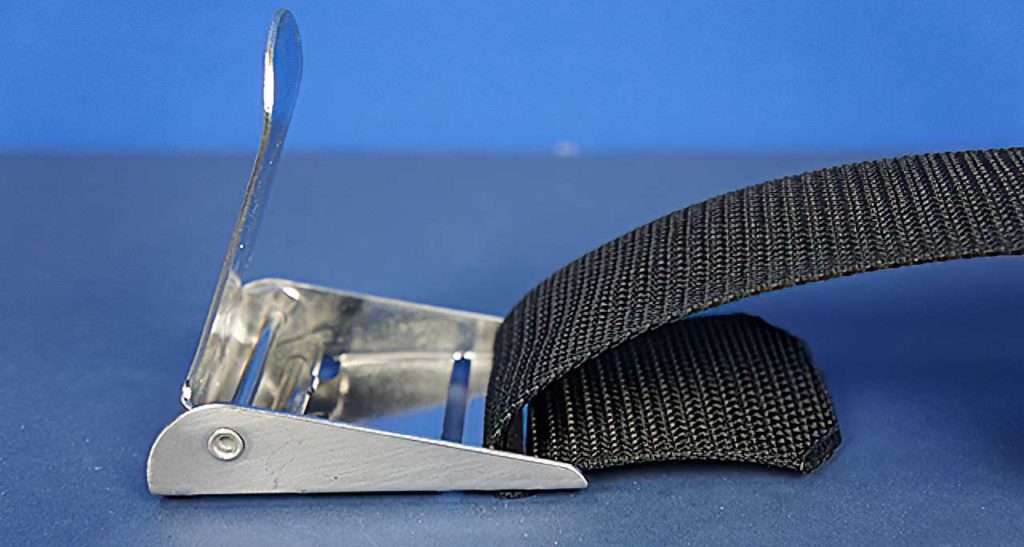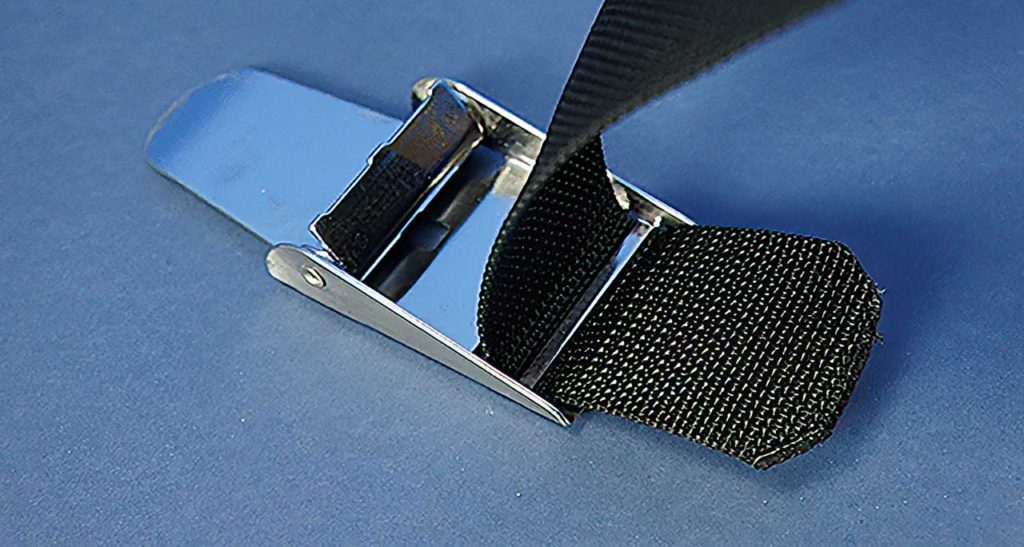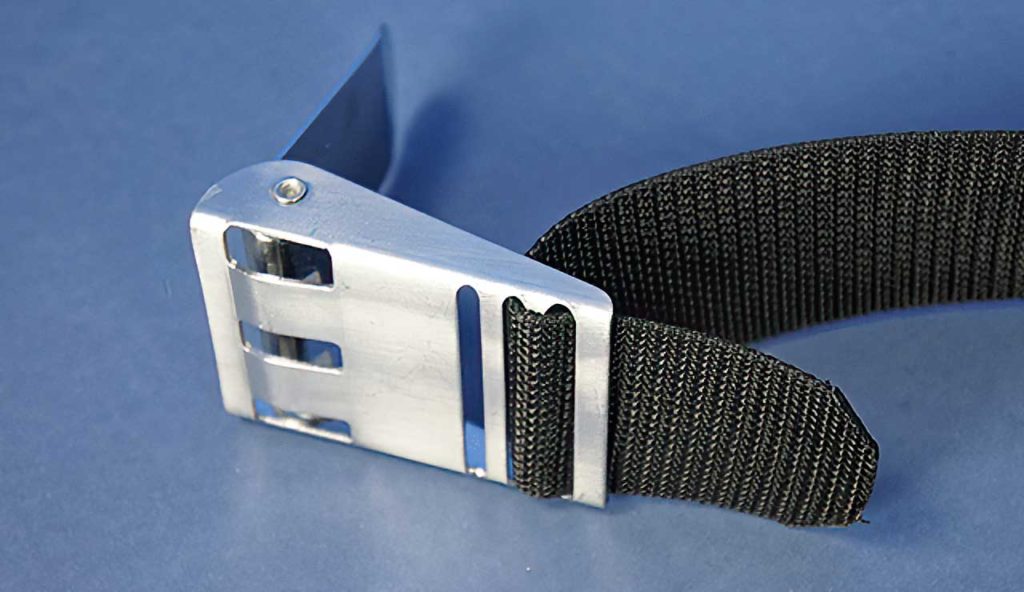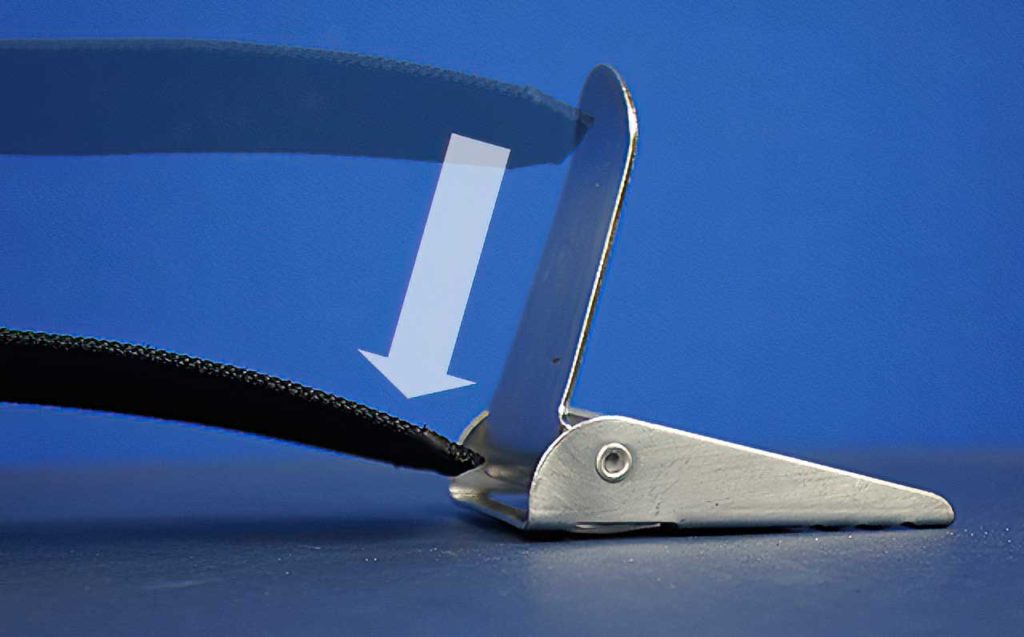Is there a “right” way to thread a standard 50 mm/2.0 in quick-release buckle? No — if for no other reason than not all of these buckles are identical. However, we’ve found a way that works exceptionally well with most such buckles and applications.
As much as we’d like to take credit for this approach, that credit actually goes to author Dennis Graver, who first published it in his 1978 book Sport Diving A to Z. Although most of today’s divers do not recognize Dennis’ name, in the 1970s and 1980s, his work with two of the world’s largest diver training organizations had a tremendous impact on how people learn and dive.
Graver’s recommended method is simplicity in itself:
- Start by folding open the buckle’s tang (the part that pivots).
- Working from the inside of the buckle, thread the webbing through the second open slot — the one that’s one slot in from the end of the buckle.
- Bring the webbing back up through the slot closest to the end of the buckle.
- Fold the webbing flat.
That’s all there is to it. This approach offers numerous benefits, including:
- It’s idiot simple.
- It allows instantaneous and infinite strap length adjustment without having to unthread the buckle completely.
- No excess strap sticks out the front of the buckle to confuse matters.
- All excess strap is automatically tucked between the outer webbing and the diver’s body and is directed back in the direction from which the webbing came.
Unless they are among the few divers still using weight belts, most of today’s recreational divers never have to deal with this type of buckle. This type of buckle is common once you get into technical diving or technical-style diving harnesses.
Speaking of which, have you ever been frustrated by trying to get the “bitter” or free end of the webbing into that tiny slot beneath the tang when you can’t look directly at it?
There’s an easy way to deal with that:
- Fold the tang to a 90-degree angle to the rest of the buckle.
- Touch the free end of the webbing to the tip of the tang.
- Slide the tip of the webbing down the tang until you find the slot.
- In it goes.
The quick-release buckle has been with us for well over 50 years. Despite its age, it serves its purpose well. Master these two tricks, and you’ll find yours very easy to work with.


